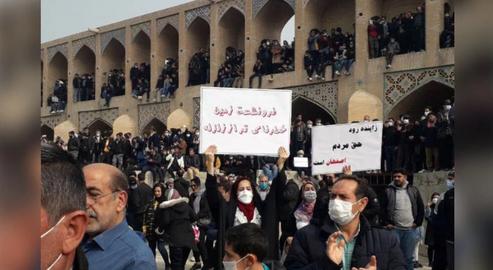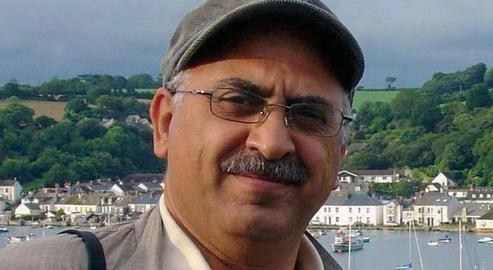During the pro-democracy protests of 2009 it was Iran’s middle classes that led the charge against the government. Ten years later, lower-income Iranians were front and center at the November 2019 protests. In Isfahan, the current protests are striking not only because of their scale, but because of the number of religious people taking part.
Farmers in Isfahan are predominantly Shia adherents. In February 2018, the first group held a sit-in at Friday prayers, turning their back on the Imam to show their anger at how the city was being governed. Protests over water shortages and resource mismanagement had already been going on for years, but this marked a turning point.
The Islamic Republic once placed the foundations of its legitimacy on the shoulders of the "oppressed" and the "pious". Now these same, humble people have turned against decision-makers. For the past two decades Iran’s ruling clerical caste has been afraid of this exact eventuality, which was also confirmed in a recent academic study.
An article, entitled Meta-Analysis of Iranian Religiosity in the Last Decade and its Security Consequences, was published in the latest issue of the quarterly Strategic Studies, which is affiliated with the Ministry of Science. It explicitly stated: “The extent and nature of people's religiosity in Iranian society, which has a traditional cultural-religious basis and is predominantly Islamic, is of strategic importance, and its changes can have security consequences.” This thesis was then backed up by 60 separate interviews with experts and members of the religious elite.
It also included some figures that appeared to show a decline in religious sentiment in Iran. The level of “public belief in the principle of God's existence", authors found, stood at a stated 98.7 percent in 2009, and had declined to 93.4 percent in 2019. Four percent fewer Iranians than in 2009 also claimed to believe in concepts like “prophecy” and “resurrection”.
In general, the study asserted, about 88 percent of Iranians could be considered religiously inclined, compared to 92 percent in 2009. Participation in religious rituals, pilgrimages and ceremonies had slid from 95.5 percent in 2012 to 82.5 percent in 2019. For whatever reason the authors declined to present statistics on the number of Iranians who prayed, only saying that the state of the practice was not “critical”. Similarly, fasting was described only as being “on the decline” while “illegitimate relationships”, “bad hijab” and “not abstaining from alcohol” were said to be on the rise.
The study’s interviewees expressed the near-unanimous view that the influence of the Twelver Shia clergy was declining in Iran, with more people inclined to consider religion critically or lean more toward “a kind of global spirituality”. This, it was posited, was the result of the clergy’s poor performance in governing Iran, economic problems, “generational rupture” and “the global trend of modernity”. In time, they warned, this could lead to decreased money in state coffers and “a weakening of the position of Velayat-e Faqih (Guardianship of the Islamic Jurist) and the status of the sources of emulation."
Related coverage:
Videos: Tear Gas and Shots Fired on Isfahan Protesters
Isfahan's Water Crisis: How Did We Get Here?
Government Study: Schoolgirls in Iran are Turning Away From Hijab
Moonshine Republic: Survey Finds a Quarter of Iranians Drink Home-Made Alcohol
visit the accountability section
In this section of Iran Wire, you can contact the officials and launch your campaign for various problems

























comments